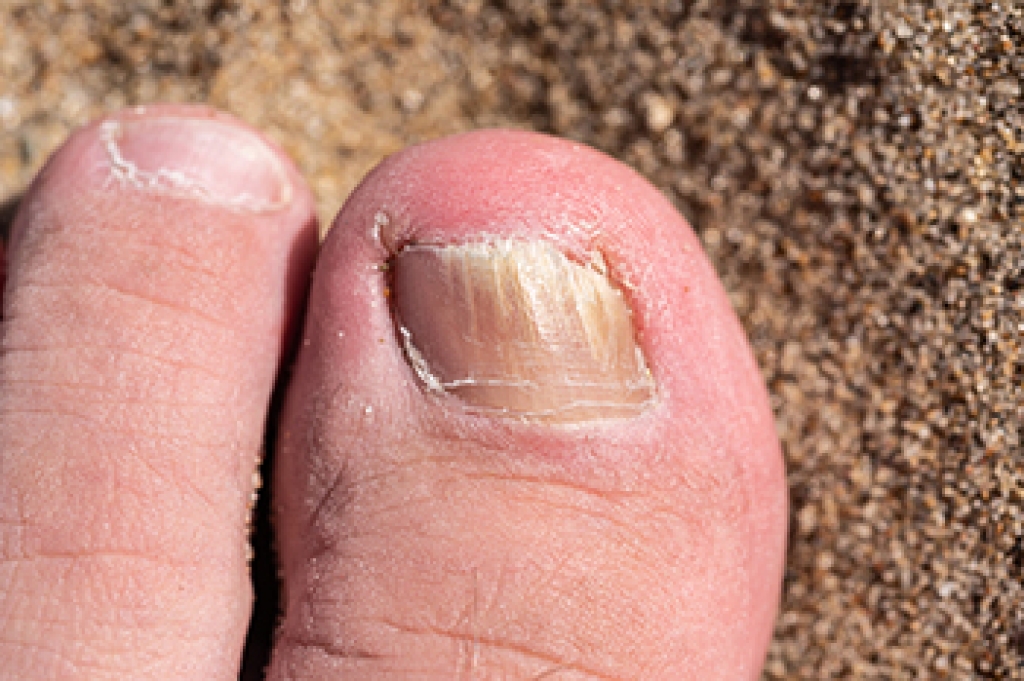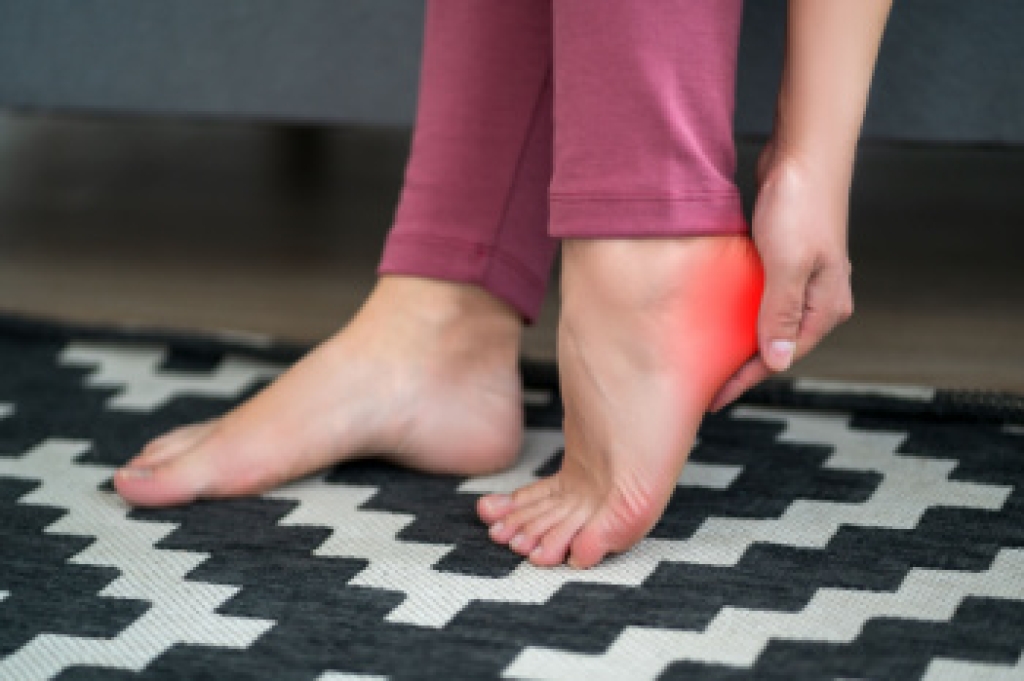Connect With Us
Blog
Blog
Who Is Prone to Getting Cuboid Syndrome?
The cuboid bone is located on the outer edge of the foot, and is responsible for maintaining movement while walking. A sudden injury or gradual decline can cause the cuboid bone to shift, and this can make completing daily activities difficult. Cuboid syndrome occurs when this bone shifts and the surrounding tendons and ligaments become inflamed. Patients who frequently wear high heels can endure a cuboid bone injury, and ballet dancers often notice this is as a common ailment. The pain that is generally felt with this condition is on the outside and sole of the foot, which can cause severe pain and discomfort. If you are afflicted with cuboid syndrome, it is strongly suggested that you speak with a podiatrist who can guide you toward proper treatment options.
Cuboid syndrome, also known as cuboid subluxation, occurs when the joints and ligaments near the cuboid bone in the foot become torn. If you have cuboid syndrome, consult with one of our podiatrists from David A. Scalzo, DPM, PC and Associates. Our doctors will assess your condition and provide you with quality foot and ankle treatment.
Cuboid syndrome is a common cause of lateral foot pain, which is pain on the outside of the foot. The condition may happen suddenly due to an ankle sprain, or it may develop slowly overtime from repetitive tension through the bone and surrounding structures.
Causes
The most common causes of cuboid syndrome include:
- Injury – The most common cause of this ailment is an ankle sprain.
- Repetitive Strain – Tension placed through the peroneus longus muscle from repetitive activities such as jumping and running may cause excessive traction on the bone causing it to sublux.
- Altered Foot Biomechanics – Most people suffering from cuboid subluxation have flat feet.
Symptoms
A common symptom of cuboid syndrome is pain along the outside of the foot which can be felt in the ankle and toes. This pain may create walking difficulties and may cause those with the condition to walk with a limp.
Diagnosis
Diagnosis of cuboid syndrome is often difficult, and it is often misdiagnosed. X-rays, MRIs and CT scans often fail to properly show the cuboid subluxation. Although there isn’t a specific test used to diagnose cuboid syndrome, your podiatrist will usually check if pain is felt while pressing firmly on the cuboid bone of your foot.
Treatment
Just as the range of causes varies widely, so do treatments. Some more common treatments are ice therapy, rest, exercise, taping, and orthotics.
If you have any questions, please feel free to contact our office located in Duryea, PA . We offer the newest diagnostic and treatment technologies for all your foot care needs.
Understanding Toenail Fungus

Toenail fungus, also known as onychomycosis, is a common condition that causes thickened, discolored, and brittle nails. It often begins as a white or yellow spot under the tip of the toenail and gradually spreads deeper, leading to nail distortion, crumbling edges, and possible separation from the nail bed. The infected nail may feel rough, emit a foul odor, and cause discomfort or pain when wearing shoes. Causes include exposure to warm, moist environments such as public showers, locker rooms, and around swimming pools, as well as wearing tight shoes or having a history of athlete's foot. A podiatrist can diagnose toenail fungus through a physical exam and by analyzing nail clippings. Treatment options include topical or oral antifungal medications, or in severe cases, removal of the affected nail. Early treatment increases success rates and prevents further spread. It is suggested that you make an appointment with a podiatrist to properly identify and treat toenail fungus.
For more information about treatment, contact one of our podiatrists of David A. Scalzo, DPM, PC and Associates. Our doctors can provide the care you need to keep you pain-free and on your feet.
Toenail Fungus Treatment
Toenail fungus is a condition that affects many people and can be especially hard to get rid of. Fortunately, there are several methods to go about treating and avoiding it.
Antifungals & Deterrence
Oral antifungal medicine has been shown to be effective in many cases. It is important to consult with a podiatrist to determine the proper regiment for you, or potentially explore other options.
Applying foot powder on the feet and shoes helps keep the feet free of moisture and sweat.
Sandals or open toed shoes – Wearing these will allow air movement and help keep feet dry. They also expose your feet to light, which fungus cannot tolerate. Socks with moisture wicking material also help as well.
If you have any questions please contact our office located in Duryea, PA . We offer the newest diagnostic and treatment technologies for all your foot and ankle needs.
Ingrown Toenail Surgery and When It Is Needed

Ingrown toenail surgery is a procedure performed to correct a toenail that grows into the surrounding skin, causing pain, swelling, and sometimes infection. Common causes include improper nail trimming, wearing tight footwear, trauma, or naturally curved nails. The procedure typically involves removing part or all of the affected nail and, in some cases, treating the nail matrix to prevent recurrence. Risk factors include diabetes, poor circulation, or previous ingrown toenails. Surgery is recommended when conservative care, such as soaking, antibiotics, or protective measures, fails to relieve discomfort. If you have an ingrown toenail, it is suggested that you consult a podiatrist who can effectively treat this condition, which may include minor surgery for removal.
Foot surgery is sometimes necessary to treat a foot ailment. To learn more, contact one of our podiatrists of David A. Scalzo, DPM, PC and Associates. Our doctors will assist you with all of your foot and ankle needs.
When Is Surgery Necessary?
Foot and ankle surgery is generally reserved for cases in which less invasive, conservative procedures have failed to alleviate the problem. Some of the cases in which surgery may be necessary include:
- Removing foot deformities like bunions and bone spurs
- Severe arthritis that has caused bone issues
- Cosmetic reconstruction
What Types of Surgery Are There?
The type of surgery you receive will depend on the nature of the problem you have. Some of the possible surgeries include:
- Bunionectomy for painful bunions
- Surgical fusion for realignment of bones
- Neuropathy decompression surgery to treat nerve damage
Benefits of Surgery
Although surgery is usually a last resort, it can provide more complete pain relief compared to non-surgical methods and may allow you to finally resume full activity.
Surgical techniques have also become increasingly sophisticated. Techniques like endoscopic surgery allow for smaller incisions and faster recovery times.
If you have any questions, please feel free to contact our office located in Duryea, PA . We offer the newest diagnostic and treatment technologies for all your foot care needs.
The Bump on the Heel That Will Not Go Away

Haglund’s deformity is a bony enlargement that forms at the back of the heel where the Achilles tendon attaches. This bump often rubs against shoes, especially stiff-backed ones, causing irritation, swelling, and pain. Many people notice redness and even blistering in the area before realizing a bone growth is the real source of the problem. Because of this, the condition is sometimes nicknamed the pump bump, as it is common in people who wear rigid dress shoes or high heels. The discomfort may worsen with activity or pressure from footwear, making daily walking difficult. Treatment often begins with avoiding tight shoes and using heel pads. Targeted exercise and orthotics can help ease strain on the tendon. In persistent cases, surgery may be needed to remove the bony prominence. If you have pain from such a bump on your heel, it is suggested that you see a podiatrist who can recommend the best plan to relieve symptoms and restore comfort.
Heel spurs can be incredibly painful and sometimes may make you unable to participate in physical activities. To get medical care for your heel spurs, contact one of our podiatrists from David A. Scalzo, DPM, PC and Associates. Our doctors will do everything possible to treat your condition.
Heels Spurs
Heel spurs are formed by calcium deposits on the back of the foot where the heel is. This can also be caused by small fragments of bone breaking off one section of the foot, attaching onto the back of the foot. Heel spurs can also be bone growth on the back of the foot and may grow in the direction of the arch of the foot.
Older individuals usually suffer from heel spurs and pain sometimes intensifies with age. One of the main condition's spurs are related to is plantar fasciitis.
Pain
The pain associated with spurs is often because of weight placed on the feet. When someone is walking, their entire weight is concentrated on the feet. Bone spurs then have the tendency to affect other bones and tissues around the foot. As the pain continues, the feet will become tender and sensitive over time.
Treatments
There are many ways to treat heel spurs. If one is suffering from heel spurs in conjunction with pain, there are several methods for healing. Medication, surgery, and herbal care are some options.
If you have any questions, please feel free to contact our office located in Duryea, PA . We offer the newest diagnostic and treatment technologies for all your foot care needs.
Blog Archives
- 2026
- 2025
- 2024
- 2023
- 2022


